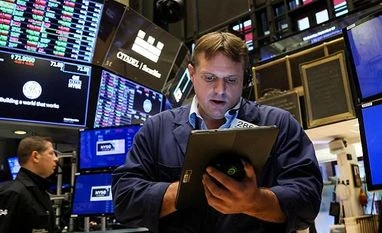US stocks slumped on Tuesday, with technology shares taking the biggest hit, after data showed monthly consumer prices unexpectedly rose in August, cementing bets of a third straight 75-basis-point rate hike from the Federal Reserve next week.
The Fed has raised borrowing costs faster this year than at any time since the 1980s, showing its determination to keep raising rates until there is a sustained drop in inflation, which has been running at 40-year highs and above the Fed's target of 2%.
The Labor Department's consumer price index (CPI) report showed monthly CPI gained 0.1% in August from July, against expectation of a 0.1% dip. Excluding the volatile food and energy components, core CPI increased to 6.3% from 5.9% in July.
"Until we get inflation prints, not just one, but two, three, maybe four, moving downward steadily, that's when we can call a trend and the Fed may feel some comfort in at least taking a pause," said Mona Mahajan, senior investment strategist at Edward Jones.
All eyes are now on producer price index report due on Wednesday.
All of the 11 S&P sectors declined, led by a 4.3% slump in the communication services sector. The small cap Russell 2000 index dipped 2.9%.
The S&P 500 growth stocks index, which houses rate-sensitive technology and growth shares, fell 3.8% as Treasury yields rose, while its value counterpart lost 2.2%.
Mega-cap technology stocks Apple Inc, Microsoft Corp and Tesla Inc dropped 4.1% each, while Alphabet Inc, Amazon.com Inc and Meta Platforms Inc slid between 4.8% and 7.4%.
Money markets are now pricing in at least a 75 bps increase in rates, with 23% chance of a whopping 100 bps hike by the Fed at its Sept. 20-21 meeting, while expecting rates to peak at around 4.28% in March 2023.
"Initially everybody was convinced that the Fed was going to try to hike to, say 3.5% or 4%, and we were really concerned about the journey to that destination. But now, it seems like the destination is now a little bit more in question," said Brian Jacobsen, senior investment strategist, Allspring Global Investments.
"The big risk is that next week, the Fed tries to convince the markets that they're not going to just try to go for 4% with the Fed funds rate, but that they could push it to something closer to four and a half percent."
At 12:09 p.m. ET, the Dow Jones Industrial Average was down 848.07 points, or 2.62%, at 31,533.27, the S&P 500 was down 122.57 points, or 2.98%, at 3,987.84, and the Nasdaq Composite was down 470.90 points, or 3.84%, at 11,795.51.
The gap between yields on the two- and 10-year notes , often seen as an indicator of a looming recession, inverted further. Rate-sensitive bank stocks dropped 2.8%.
The three major indexes had rallied in the last four sessions as investors took advantage of a sharp drop in stock prices since mid-August that was triggered by concerns over soaring inflation and the impact of tighter monetary policy to curb it.
The CBOE volatility index, also known as Wall Street's fear gauge, rose to 25.74 points.
Declining issues outnumbered advancers for a 9.56-to-1 ratio on the NYSE and for a 4.31-to-1 ratio on the Nasdaq.
The S&P index recorded one new 52-week high and one new low, while the Nasdaq recorded 19 new highs and 105 new lows.
Unlock 30+ premium stories daily hand-picked by our editors, across devices on browser and app.
Pick your 5 favourite companies, get a daily email with all news updates on them.
Full access to our intuitive epaper - clip, save, share articles from any device; newspaper archives from 2006.
Preferential invites to Business Standard events.
Curated newsletters on markets, personal finance, policy & politics, start-ups, technology, and more.
)